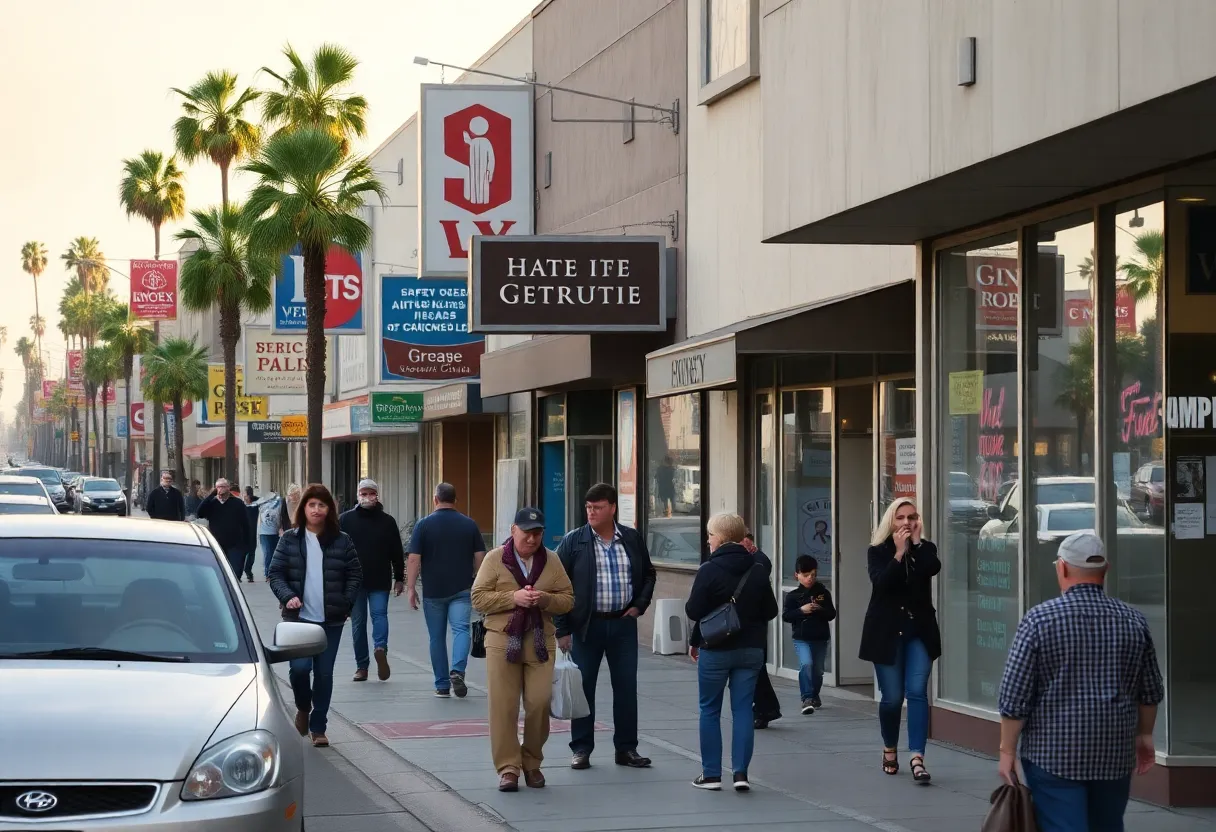News Summary
California’s economy is experiencing significant disruptions as immigration raids by the Trump administration continue. With businesses closing and neighborhoods in fear, experts warn of long-term consequences, particularly in sectors reliant on immigrant labor. A decline in employment and consumer spending has been noted, with particular impacts on agriculture and construction. The ongoing situation could lead to billions in economic losses and further exacerbate labor shortages in critical industries.
California’s economy is facing severe disruptions as the Trump administration’s immigration raids targeting undocumented workers enter their third month. The crackdown, which began in early June, has led to businesses shuttering and neighborhoods in Los Angeles becoming less populated as fear drives many people to stay at home. Economists are warning that these ongoing immigration sweeps could result in long-term economic consequences, especially for businesses dependent on immigrant labor.
The situation has sparked alarm among economists, including Giovanni Peri, an economics professor at UC Davis, who indicates that if a significant number of undocumented workers are deported or too fearful to work, the overall impact on the state’s economy could be substantial. The implications of these raids extend beyond individual workers; they could potentially dampen productivity and lead to rising food prices across the United States.
One of the notable companies affected by the raids is Home Depot, which has been targeted multiple times for employing day laborers. California’s economy, despite being the fourth largest in the world, is proving to be vulnerable to these disruptions. Todd Sorensen from UC Riverside has expressed concern regarding the troubling economic trends associated with the immigration raids.
Data from an analysis conducted by UC Merced revealed a 3.1% decrease in private sector employment in California during early June, a decline reminiscent of the economic downturn observed during the COVID-19 pandemic. The hardest hit demographic has been noncitizen women, who experienced an 8.6% drop in reported work. This reduction in the workforce has resulted in diminished consumer spending, further exacerbating the economic slowdown.
In particular, the Fashion District in downtown Los Angeles has seen a notable decline in customer traffic attributed to these immigration sweeps. Undocumented workers constitute nearly 5% of California’s GDP, and this contribution increases to approximately 9% when considering the broader ripple effects of their labor across various sectors. There are about 2.28 million undocumented immigrants residing in California, representing 8% of the state’s total workforce. Two-thirds of these individuals have lived in the state for over a decade, contributing around $23 billion in taxes annually.
If undocumented workers were removed from California’s economy, the agricultural and construction sectors would face significant declines of 14% and 16%, respectively. Currently, the agricultural sector is already encountering a labor shortage during the peak harvesting season, leading to reports of crop losses. Moreover, businesses in the hotel and tourism sectors are bracing for negative impacts as customer confidence is shaken by the fear of raids.
State officials are pivoting to the challenges posed by declining international tourism, projecting a possible 9.2% drop in visitor numbers by 2025, a direct result of negative sentiment around the Trump administration’s immigration policies. Additionally, local officials anticipate that sales tax revenues may suffer drastically as a result of diminishing business activity linked to the climate of fear generated by the raids.
The Hispanic Construction Council has raised alarms about the broader labor shortages expected in the construction industry, which heavily relies on immigrant labor. The crucial role of undocumented workers in maintaining critical infrastructure projects is at risk; ongoing shortages could severely hinder recovery efforts from disasters like wildfires and affect major developmental projects in the pipeline.
Overall, multiple industries—most notably agriculture and construction—are anticipated to face overwhelming challenges if the immigration raids persist indefinitely. This situation poses a risk of hundreds of billions in economic losses for California, a state that has long been shaped and energized by the contributions of its immigrant workforce.
Deeper Dive: News & Info About This Topic
- USA Today: Mass Deportations in California
- Wikipedia: Immigration in the United States
- KTLA: Court Blocks Immigration Raids
- Google Search: California immigration raids
- Los Angeles Times: Work Absences After Raids
- Encyclopedia Britannica: Immigration
- The Guardian: Federal Agents Raid Farms
- Google News: California economy impact of immigration raids

Author: STAFF HERE HOLLYWOOD
The Hollywood Staff Writer represents the experienced team at HEREHollywood.com, your go-to source for actionable local news and information in Hollywood, Los Angeles County, and beyond. Specializing in "news you can use," we cover essential topics like product reviews for personal and business needs, local business directories, politics, real estate trends, neighborhood insights, and state news affecting the area—with deep expertise drawn from years of dedicated reporting and strong community input, including local press releases and business updates. We deliver top reporting on high-value events such as the Hollywood Bowl summer concerts, the Hollywood Christmas Parade, film premieres at TCL Chinese Theatre, and festivals at the Magic Castle. Our coverage extends to key organizations like the Hollywood Chamber of Commerce and Visit Hollywood, plus leading businesses in entertainment, dining, and tourism that define the local economy. As part of the broader HERE network, including HERELosAngeles.com, HEREBeverlyHills.com, HEREAnaheim.com, and HEREHuntingtonBeach.com, we provide comprehensive, credible insights into Southern California's dynamic landscape.



